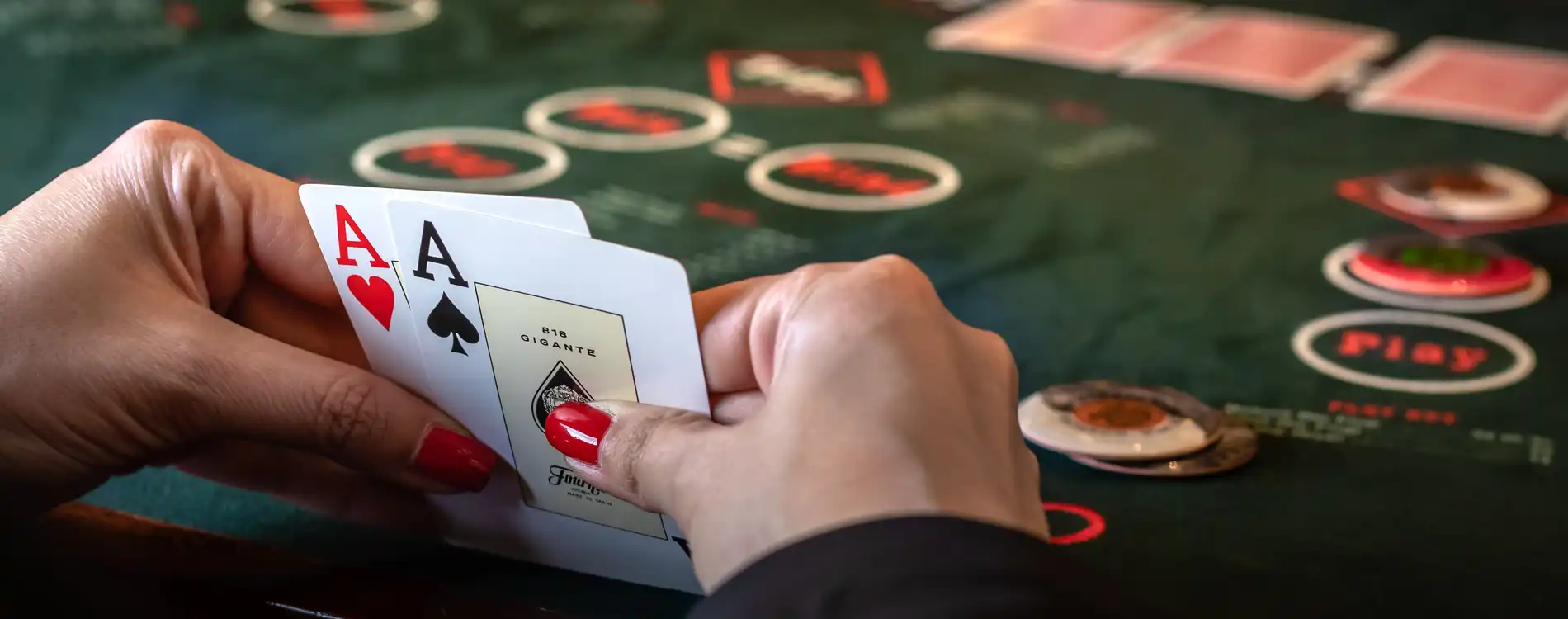Casino poker is one of the world’s most beloved and long-standing card games, played at casinos around the globe. Blending elements of skill, strategy, and luck provide an exhilarating gaming experience that attracts casual players and serious professionals alike. While other casino games tend to place greater importance on luck than understanding its intricacies, poker requires deep knowledge of its intricacies to master truly; experienced players know their decisions have an enormous effect on each hand’s outcome. In this article, we’ll dive deep into its differences from other card games and explain that it requires dedication and focus from professionals alike!
At its core, casino poker is played using a standard deck of 52 cards, and the objective is to form the best hand according to its specific rules. However, multiple variations of poker played in casinos—Texas Hold’em, Omaha, and Seven Card Stud are popular forms—its rules tend to remain relatively consistent between variations, with royal flush being the highest possible hand and high cards being considered a low hand ranking.
Opposed to traditional casino games, where players compete against the house, poker pits players against one another. The casino simply provides the environment and takes a small fee or percentage from each pot (known as “rake”). This unique dynamic adds another complication not seen elsewhere: success doesn’t depend on random luck alone. Instead, it requires outwitting your opponents by accurately reading their actions and making strategic moves at the right moment.
Skill Vs Luck: The Unique Nature of Poker
What distinguishes poker from other casino games is its distinct balance between skill and luck. Although each card dealt is completely random and luck can influence any single hand dealt out, skilled players typically outshone novices over time due to having to make calculated decisions based on hand strength, table position, and opponent behaviour – something random cards alone do not do!
Bluffing is an integral com0ponent of poker; mastering it can make all the difference between winning and losing. A carefully executed bluff may get your opponent to fold a stronger hand without showing their cards; it only requires understanding your opponent’s tendencies and projecting confidence even when your cards don’t favour you.
Reading Your Opponents: The Art of Psychological Poker
One of the most fascinating aspects of poker is its psychological aspect. Unlike many casino games, where outcomes are determined purely by random chance, poker allows players to influence the outcome through their actions and behaviours. This makes reading opponents an essential skill in poker; their body language, betting patterns, and reactions can give valuable clues into the strength of their hand.
Successful poker players possess an extraordinary skill: reading their opponents. Successful readers recognize subtle cues that signal whether an opponent is bluffing or holding strong cards. Physical “tells” tend to be highlighted in movies, while online players often use timing tells or bet sizing analyses to gain insight into opponent strategies and understand how best to counter them. Being able to interpret these signals effectively gives poker players an immense edge at the table.
As previously discussed, various variations of casino poker are popularly played. Each version features its own distinct set of rules and strategies, leading players to specialize in specific forms.
Texas Hold-em:
This form of poker has become one of the most beloved forms of play at competitions such as the World Series of Poker (WSOP). Each player receives two “hole cards,” along with five community cards placed face up on a board. The aim is to create the best five-card hand by using both sets of private and community cards in any combination.
Omaha:
Similar to Texas Hold’em, Omaha poker uses four-hole cards distributed per player instead of just two. One significant difference, though, lies within this rule change – players must use at least two hole cards and three community cards when creating their final hand for Omaha poker – this significantly changes both strategy and dynamics.
Seven Card Stud:
Before Texas Hold’em became the dominant form of poker, Seven Card Stud was an immensely popular variant. In this version, players receive both face-up and face-down cards over several betting rounds. Unlike its cousins Hold’em and Omaha, however, Seven Card Stud provides individualistic gameplay that requires different strategic considerations.
Casino Poker Tournaments as an Exertion of Skill and Endurance
For many poker players, tournaments offer an ultimate test of both skill and endurance. In such an environment, participants buy-in for an agreed-upon amount and receive an equal number of chips; blinds (forced bets) increase and players are gradually eliminated as they lose all their chips until one person remains with all their chips at the end – typically the winner! Furthermore, top finishers often receive prizes based on their final placement in the competition.
Tournaments have become an enduring tradition in Texas Hold’em poker, and events like the WSOP Main Event have cemented Phil Ivey, Daniel Negreanu, and Doyle Brunson into household names. Winning such tournaments requires not only skill but stamina, as some may span multiple days.
Bankroll Management in Casino Poker
One of the keys to being a successful poker player lies in knowing how to manage your bankroll effectively. Since poker combines luck and skill, even experienced players will experience losing streaks from time to time; with proper bankroll management in place, however, you should be able to weather these downswings without going broke – this involves setting aside a set amount for poker play while staying within your limits and spending as little money as possible on it.
Many professional poker players recommend keeping a bankroll large enough to cover at least 20-30 buy-ins at the stakes you are playing at. This will enable you to stay in the game even during bad luck while providing enough opportunity for recovery with skilful play.
Online Poker in Casino Poker
Over time, online poker has become an indispensable component of the casino poker world. Online platforms allow players to compete against opponents from around the globe in various game, stake, and tournament formats available online.



